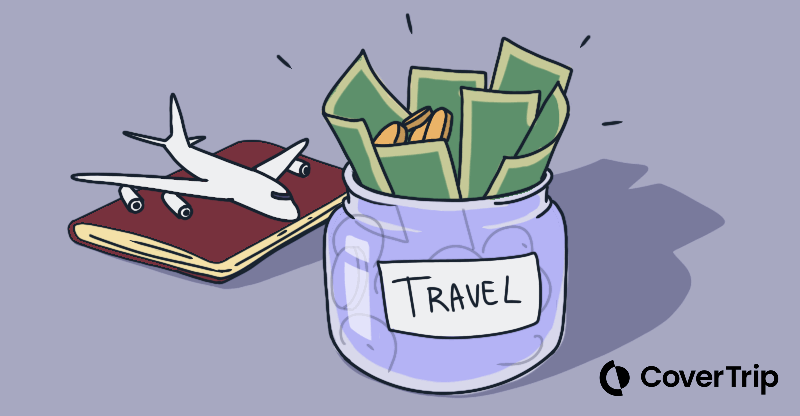How you can save money on your summer travel
30 March 2023
If stats like these don’t convince you that advance planning will be more critical than ever this summer, I don’t know what will:
- Demand for transatlantic flights to Europe is extremely high right now
- Passport renewal times are long (over 3 months), so get yours renewed now!
- TSA PreCheck continues to set new active membership records
Step one is to start planning your summer trip yesterday. And here are the remaining expert tips to save money on summer travel this year.

Allow room for flexibility this summer
Building flexibility into your travel plans will be critical for summer trips this year. Of course, this is also the year to be open to new and unexpected experiences.
Here are some terrific ways to allow flexibility in your summer travel plans:
Location
If flights are too expensive and lodging all booked up, look for alternative locations that can give you a similar experience.
For example, if you’re longing for the cobblestone streets of Europe, consider the French charm of Montreal or the cobblestone streets of Quebec City. Both cities in Canada have a historic district, Vieux-Montreal or Vieux-Québec, old churches, well-preserved 17th and 18th-century architecture, and narrow cobblestone streets.
They also have summer music festivals that rival those in Europe:
- Festival d’été de Québec, featuring more than 250 shows across multiple stages throughout the city in July.
- Montreal Jazz Festival, hosting thousands of artists over a period of ten days in late June.
Another sign that the summer travel season is bonkers already? The Quebec music festival is already sold out for 2023 😟
Timing
If flights in early summer are limited and expensive, consider some flexibility in timing. Move your trip into the shoulder season.
September and early October in many parts of Europe bring mild temperatures, fewer crowds, and cheaper flights. The same is true for domestic trips like Chicago, Seattle, and New York. All of the islands in Hawaii and the Caribbean get less crowded and less expensive then too (although keep an eye out for hurricanes).
Lodging
You may have to be more flexible with your lodging expectations this summer.
- You’ll give up some amenities, but if you’ve always stayed in hotels, consider hostels. Many offer couple- and family-friendly options with privacy and they’re much cheaper than hotels.
- You can save money on restaurant meals by cooking at least some of your meals. Consider accommodations like VRBO or AirBnB with kitchens and dine al fresco at ‘home’ in the garden.
Transportation
It’s difficult to say right now whether rental cars will be limited and pricey or cheap and plentiful this summer. The rental car market hasn’t fully recovered from the pandemic. The availability will depend on factors that can’t be predicted until the time gets closer.
This is where you may have to plan the most flexibility for your summer trip.
Research the local transportation and consider trains where possible. Many countries have upped their game with regard to train travel, especially with concerns about pollution and global warming. Often a train will take longer, but the ride is restful, scenic, and less crowded than airports and planes.
Pro tip: rent bikes and tour the location like a local! You’ll have more money for nice restaurants and burn off the extra calories. Plus, the kids will fall asleep quicker!
Find free or cheap summer trip attractions
This can take some time, but it’s 100 percent worth it.
- Did you know many cities have free walking tours? A guided walking tour can give you a preview of the city with an informed local full of helpful tips. My family swears by these and we always try to take one the first full day in a city. The walking loosens up stiff limbs after a long flight and resets our bodies to ‘local time’, plus we always find out about delicious, inexpensive, and local dining options along the way.
- Museums around the world offer free admission on certain days of the week or months. In some places, most of the museums are free all year (hello London!). All that culture and so little money spent.
- Many cities have city passes that give you access to discounted tickets and free public transportation all day long.
Here’s a tip to knowing whether a city pass is a good deal or not: if the cost of the city pass is less than the sum total of attraction and public transportation tickets to the things you want to visit, it’s a good deal.
Bonus: Many city passes have a free app that can help you look up addresses, visiting times and bus schedules.
Be smart with currency exchange
You already know not to exchange currency at airports and hotels because they typically charge a higher fee. The same is universally true for those currency exchange pop-ups everywhere.
Here are some tips for smart currency exchange:
- Make sure your bank card offers no foreign transaction fees. If not, apply for that type of card for your trip and take it instead.
- Use ATMs to withdraw local currency once you’ve left the airport. The local bank ATMs can typically be trusted and you can check ahead with your bank to see if there are partner banks in the country you’ll be visiting.
- Use a credit card with no foreign transaction fees that also earns rewards for travel expenses.
That last one is the sweet spot for most travelers. When you return, you can pay off the credit card and have reward points for your next trip!
Turn your mobile into a local phone
Walking into your cell provider and asking for a foreign plan is one way to empty your wallet quickly. US cell providers have packages that include data but from my experience, the amount of data in the plan is never enough and it’s pricey.
The key takeaway: No cell provider’s international roaming service can beat a local SIM or an e-SIM.
Yes, it takes a little figuring things out but when your device is activated as a local phone, you connect to the local network and operate as you would at home with no roaming charges.
Most SIM cards will cost you between $20 and $30 dollars for a full month of unlimited data. You can make phone calls, but I find that most travelers simply text each other anyway. It is handy to have a local phone to make restaurant reservations, however.
An e-SIM is a digital SIM card that can be activated similarly to a SIM card (although not quite as cheaply). You’ll connect to the local network and use the device as you would at home. The e-SIM market is newer than the physical SIM card switch-out, but it can be handy not to have to hold onto those tiny little things.
Pro tip: not all mobile devices support e-SIMS and setting one up can require some technical expertise.
Practice the language
You already know that it’s polite to learn some basic phrases like please, thank you, and hello but think broader than that. If you know some basic language, you can more easily avoid tourist traps, disappointing food, and getting lost on public transport.
In addition to learning some of the local phrases, you can use a translation app. These are getting smarter all the time and have become more ubiquitous, which means people don’t hate them as much.
The combination of learning to speak at least some of the local language, smiling often, and using the app with humility can take you a long way in a foreign location.
Best time for language learning? On the plane as you travel there. It will be fresh on your mind and be honest, when else will you have that kind of uninterrupted learning time?
Related topics
Damian Tysdal is the founder of CoverTrip, and is a licensed agent for travel insurance (MA 1883287). He believes travel insurance should be easier to understand, and started the first travel insurance blog in 2006.
